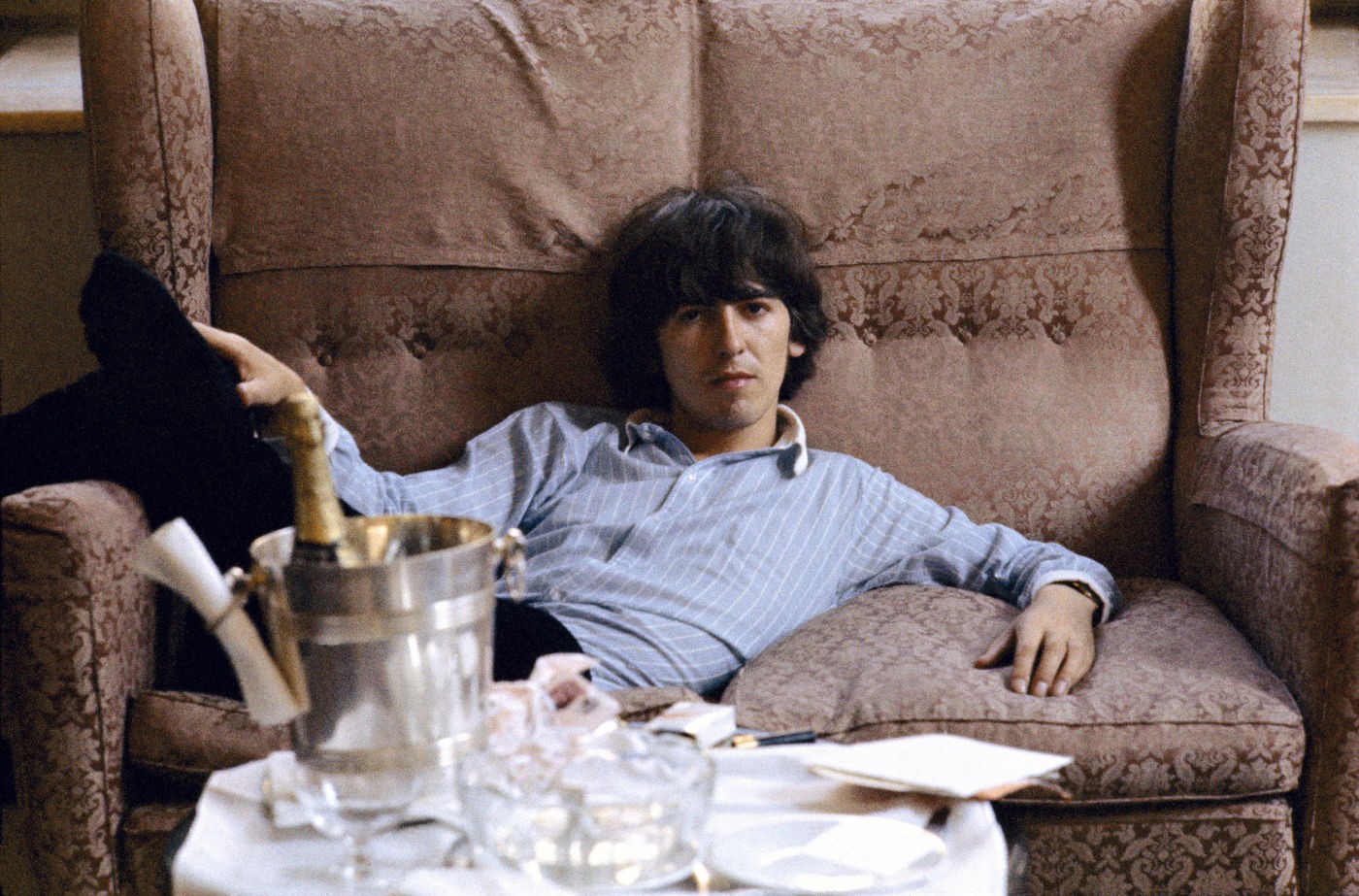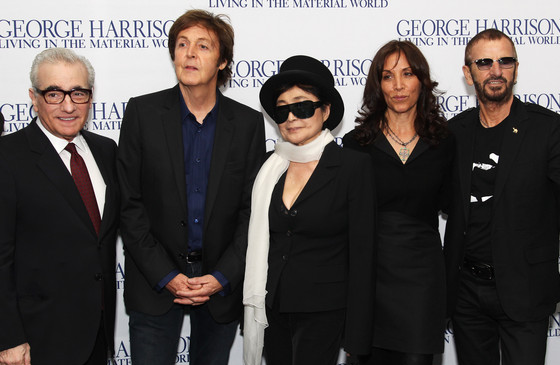 Serious Film's Michael Cusumano here to report on what will surely go down as one of my favorite titles of the New York Film Festival and one of the most entertaining movies of 2011.
Serious Film's Michael Cusumano here to report on what will surely go down as one of my favorite titles of the New York Film Festival and one of the most entertaining movies of 2011.
Of the many pleasures of Martin Scorsese’s new documentary George Harrison: Living in the Material World the most amazing must be that it managed to make several Beatles songs feel new again. For the first hour of the documentary we watch as the young and intense Harrison takes a backseat to brilliance and charisma of Lennon/McCartney. When the unspeakably beautiful strains of Harrison’s Something finally break out over the theater speakers, it isn't just the power of the music that gets to you but the thrill of watching a world class talent explode with his full potential. It's an emotionally overwhelming moment, far from the only one in Scorsese’s second great rock documentary after his equally brilliant Bob Dylan masterpiece No Direction Home.
As with that documentary, Marty skips right past the usual biopic beats and aims for the heart of the man. In the film's opening moments we cut from the early seeds of Beatlemania straight to the band’s final, tired dissolution under a mountain of legal documents. It’s Marty’s way of alerting us that this will not be the usual Ed Sullivan and screaming teeny bopper montage we’ve all seen a thousand times. Rather, this is the story of one of the 20th century’s seminal figures and how achieving unimaginable success at an early age led him to search for a fulfillment fame couldn’t bring.

Five years in the making, Material World automatically qualifies as essential viewing for anyone who cares about rock history or, for that matter, documentary filmmaking. In addition to new interviews with all the key players in the story including surviving Beatles Paul and Ringo, Marty’s research team has done an heroic job tracing down footage that hasn’t seen the light of the day for decades, including moving, unfiltered looks at the tension of the band near its end.
Harrison was a driving force not just in music, but in charity, the British film industry, and, with his well-publicized embrace of Eastern cultures, a major, radical influence on spirituality in the western world. Dealing with a man at the heart of the entertainment industry who nevertheless hungered for spiritual truth, Scorsese clearly has a strong affinity for his subject. And for all the cultural significance covered, the success of this film comes down to Scorsese’s earnest attempt to map the soul of his fellow artist.
 @ London Premiere: Scorsese w/ Paul McCartney, Yoko Ono, Olivia Harrison, Ringo Starr
@ London Premiere: Scorsese w/ Paul McCartney, Yoko Ono, Olivia Harrison, Ringo Starr
Previously on NYFF
A Separation floors Nathaniel. A frontrunner for the Oscar?
Carnage raises its voice at Nathaniel but doesn't quite scream.
Miss Bala wins the "must-see crown" from judge Michael.
Tahrir drops Michael right down in the titular Square.
A Dangerous Method excites Kurt... not in that way, perv!
The Loneliest Planet brushes against Nathaniel's skin.
Melancholia shows Michael the end of von Trier's world.